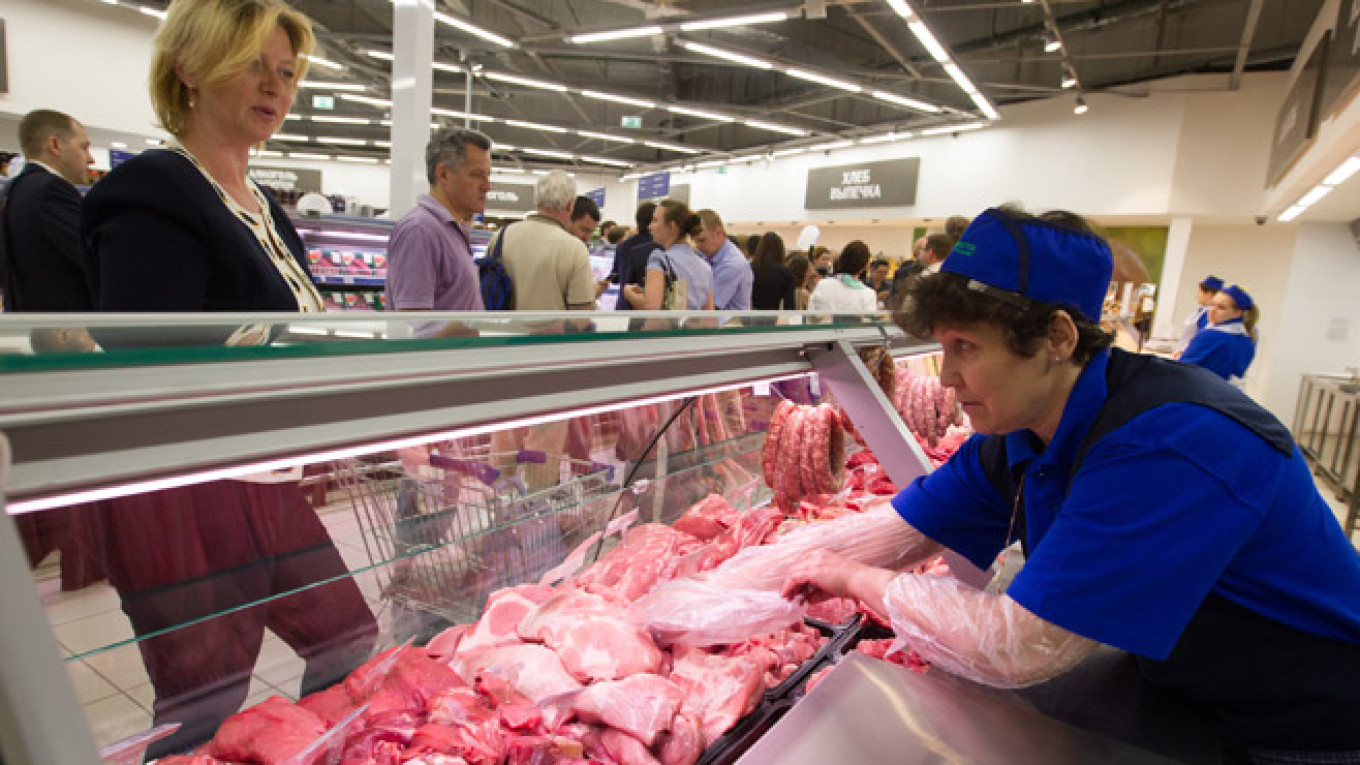Russia will allow imports from neighboring Belarus and Kazakhstan of food processed from Western raw materials as Moscow seeks to damp down domestic food price rises triggered by its ban on food imports from the West.
On Aug. 7, Russia banned all meat, fish, dairy, fruit and vegetable imports from the United States, the European Union, Norway, Canada and Australia for one year to retaliate against Western sanctions on Moscow over the Ukraine crisis.
However, the government has struggled to control price rises as some 50 percent of Russian consumption of fish, milk, beef and cheese had been previously met by imports.
"Our Customs Union colleagues can win in this situation because some products, which were previously coming to us directly, will be processed there," Russian news agencies quoted Deputy Prime Minister Arkady Dvorkovich as saying.
A duty-free Customs Union was set up this year by Russia, Kazakhstan and Belarus to boost economic ties and trade.
Prime Minister Dmitry Medvedev said on Monday he hoped Western food import bans would not last too long.
Belarus and Kazakhstan said they will continue to import food banned by Russia but Minsk has said it will make sure sanctioned goods do not cross into Russia.
However, since Moscow announced the bans some traders have been looking for ways to sidestep them.
Last year, Russia imported $17.2 billion worth of food from the countries covered by the sanctions, of which $9.2 billion was in the affected categories, according to the International Trade Center, a joint venture of the United Nations and World Trade Organization.
See also:
A Message from The Moscow Times:
Dear readers,
We are facing unprecedented challenges. Russia's Prosecutor General's Office has designated The Moscow Times as an "undesirable" organization, criminalizing our work and putting our staff at risk of prosecution. This follows our earlier unjust labeling as a "foreign agent."
These actions are direct attempts to silence independent journalism in Russia. The authorities claim our work "discredits the decisions of the Russian leadership." We see things differently: we strive to provide accurate, unbiased reporting on Russia.
We, the journalists of The Moscow Times, refuse to be silenced. But to continue our work, we need your help.
Your support, no matter how small, makes a world of difference. If you can, please support us monthly starting from just $2. It's quick to set up, and every contribution makes a significant impact.
By supporting The Moscow Times, you're defending open, independent journalism in the face of repression. Thank you for standing with us.
Remind me later.


